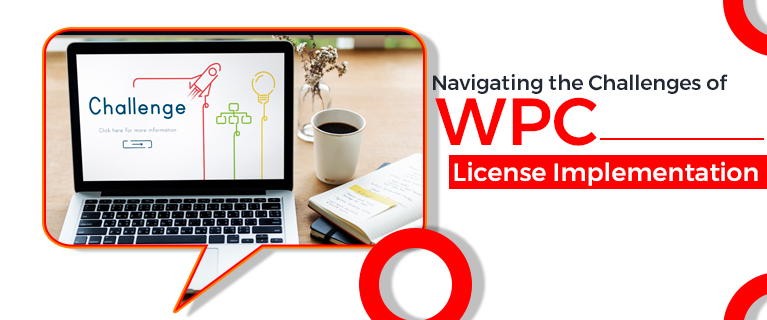The Soaring Popularity Of WPC License In India
The Wireless Planning & Coordination (WPC) license has witnessed tremendous popularity in India, serving as a crucial gateway for enabling wireless communication and connectivity across the country. As the demand for wireless technologies and services surges, the WPC license plays a pivotal role in ensuring seamless wireless operations, managing spectrum resources, and safeguarding interference-free communication. This blog explores the factors driving the increasing popularity of the WPC license in India and its significance in the nation's digital transformation.
The Wireless Planning & Coordination (WPC) license has witnessed tremendous popularity in India, serving as a crucial gateway for enabling wireless communication and connectivity across the country. As the demand for wireless technologies and services surges, the WPC license plays a pivotal role in ensuring seamless wireless operations, managing spectrum resources, and safeguarding interference-free communication. This blog explores the factors driving the increasing popularity of the WPC license in India and its significance in the nation's digital transformation.1. Mobile Revolution and Data Connectivity:
India has experienced a mobile revolution over the past decade, with a massive surge in the adoption of smartphones and data services. The WPC license facilitates the allocation of spectrum bands for mobile services, enabling the seamless connectivity that fuels the nation's digital growth.
2. Growing Internet Penetration:
As internet penetration grows, WPC-licensed wireless technologies are instrumental in bridging the digital divide, extending internet connectivity to remote and underserved regions of the country.
3. Digital India Initiative:
The Government of India's ambitious Digital India initiative aims to transform the nation into a digitally empowered society and knowledge economy. The WPC license plays a pivotal role in realizing this vision by ensuring efficient and reliable wireless communication.
4. Advancements in 5G Technology:
With the advent of 5G technology, the demand for WPC licenses has surged exponentially. 5G promises ultra-fast data speeds, low latency, and enhanced network capacity, paving the way for futuristic applications like IoT, smart cities, and autonomous vehicles.
5. Internet of Things (IoT) Revolution:
The proliferation of IoT devices and applications demands a robust and interference-free spectrum allocation. WPC-licensed bands are crucial for supporting the extensive deployment of IoT infrastructure across diverse industries.
6. Supporting Smart Cities:
As India embraces the concept of smart cities, the WPC license ensures the connectivity and interoperability of various smart city components, ranging from intelligent transportation systems to smart energy grids.
7. Remote Communication and Connectivity:
The WPC license facilitates reliable communication in remote and geographically challenging areas, enabling vital services like disaster management, healthcare, and education.
8. Ensuring National Security:
Spectrum management is crucial for ensuring national security, and the WPC license plays a pivotal role in preventing unauthorized use of wireless frequencies that may pose security risks.
9. Satellite Communication and Broadcasting:
WPC licenses are essential for regulating satellite communication and broadcasting services, facilitating the delivery of television, radio, and other broadcasting services to a vast audience.
10. Spectrum Auctions and Revenue Generation:
The allocation of WPC licenses through spectrum auctions generates substantial revenue for the government, contributing to the nation's economic growth.
11. Encouraging Innovation and Research:
The availability of WPC licenses spurs innovation and research in wireless technologies, driving technology providers to continually enhance their offerings.
12. Industry-Specific Applications:
Various industries, such as healthcare, logistics, agriculture, and manufacturing, require specialized WPC licenses to deploy wireless technologies tailored to their unique requirements.
13. Global Standardization:
The WPC license aligns with global standardization, enabling seamless integration and compatibility with international wireless technologies and services.
14. Connectivity for Education and E-Governance:
WPC-licensed wireless technologies empower educational institutions and government agencies to leverage digital platforms for remote learning and efficient e-governance services.
15. Enabling Startups and Entrepreneurs:
The WPC license provides opportunities for startups and entrepreneurs to enter the wireless communication sector, fostering innovation and economic growth.
Conclusion:
The soaring popularity of the WPC license in India stems from its critical role in enabling wireless communication, driving the nation's digital transformation, and supporting various industries and initiatives. As India continues its journey towards a digitally empowered society, the WPC license will remain an indispensable tool in expanding connectivity, fostering innovation, and propelling the nation towards a technologically advanced and connected future.


Comments
Post a Comment